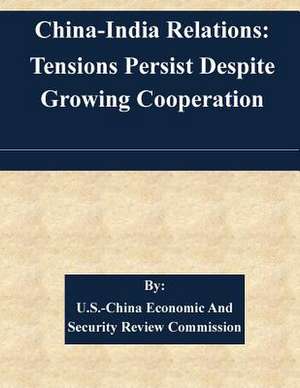China-India Relations
Autor U. S. -China Economic and Security Revieen Limba Engleză Paperback
Preț: 80.68 lei
Nou
Puncte Express: 121
Preț estimativ în valută:
15.44€ • 16.16$ • 12.77£
15.44€ • 16.16$ • 12.77£
Carte disponibilă
Livrare economică 17-31 martie
Preluare comenzi: 021 569.72.76
Specificații
ISBN-13: 9781507585047
ISBN-10: 1507585047
Pagini: 26
Dimensiuni: 216 x 279 x 1 mm
Greutate: 0.09 kg
Editura: CREATESPACE
ISBN-10: 1507585047
Pagini: 26
Dimensiuni: 216 x 279 x 1 mm
Greutate: 0.09 kg
Editura: CREATESPACE
